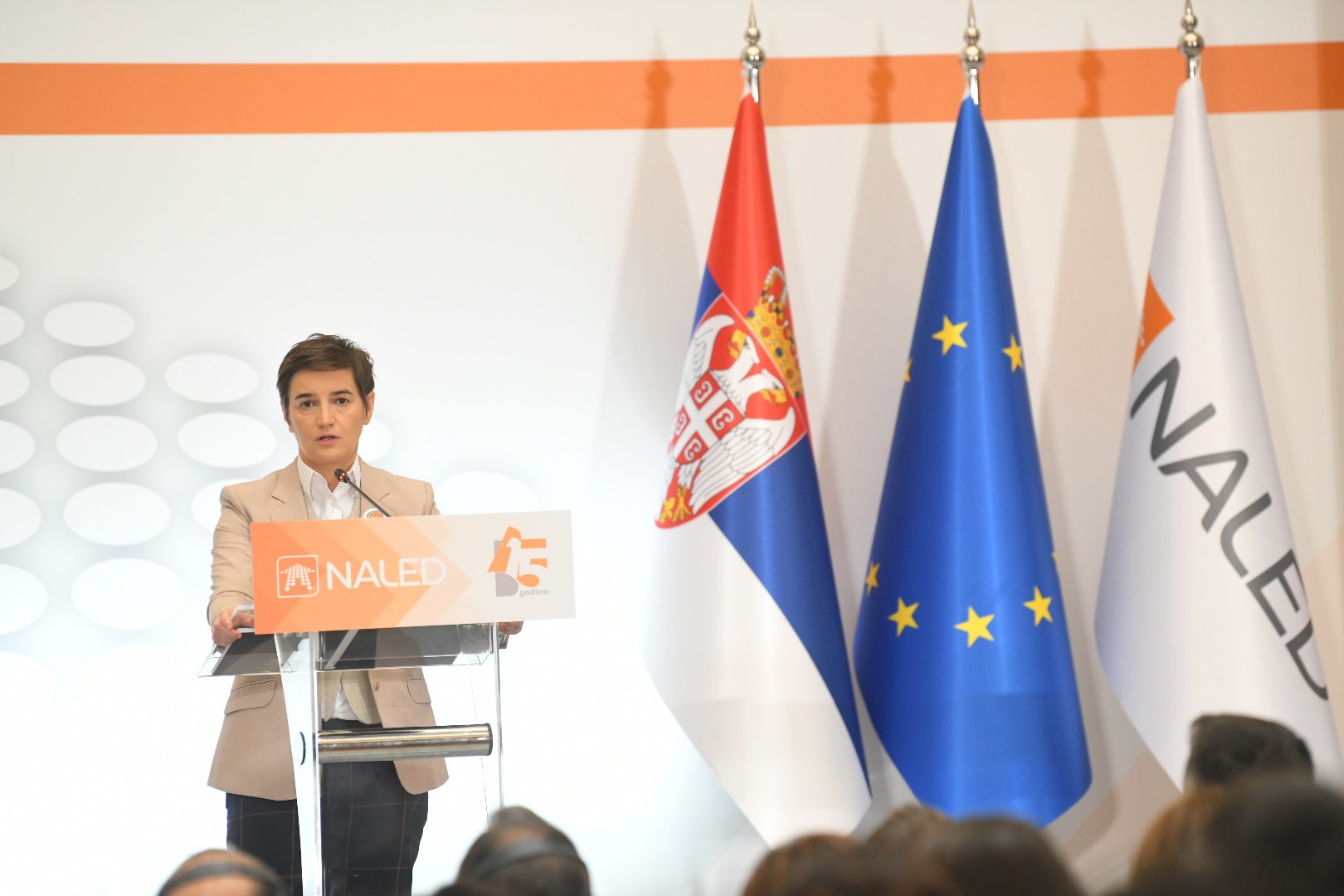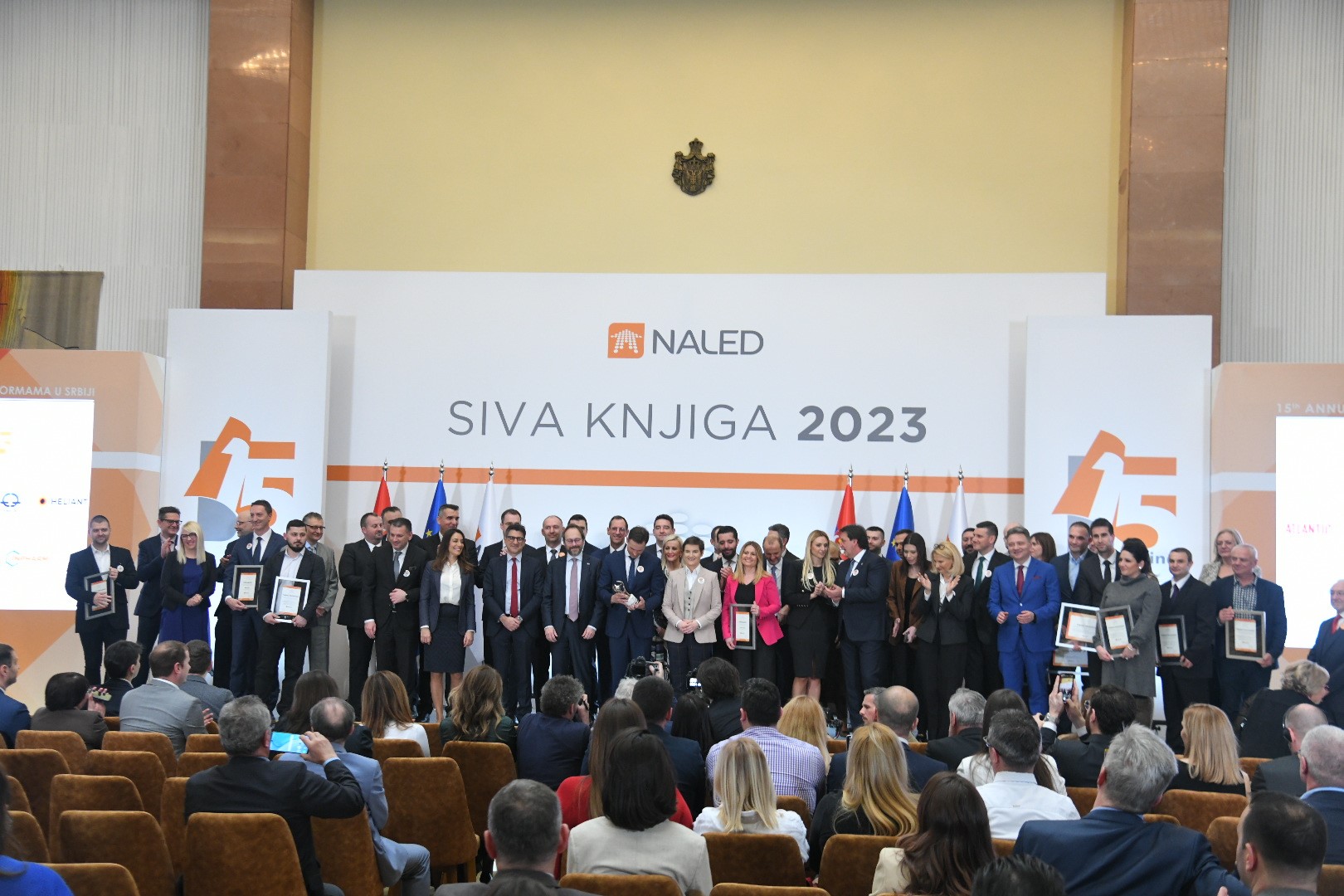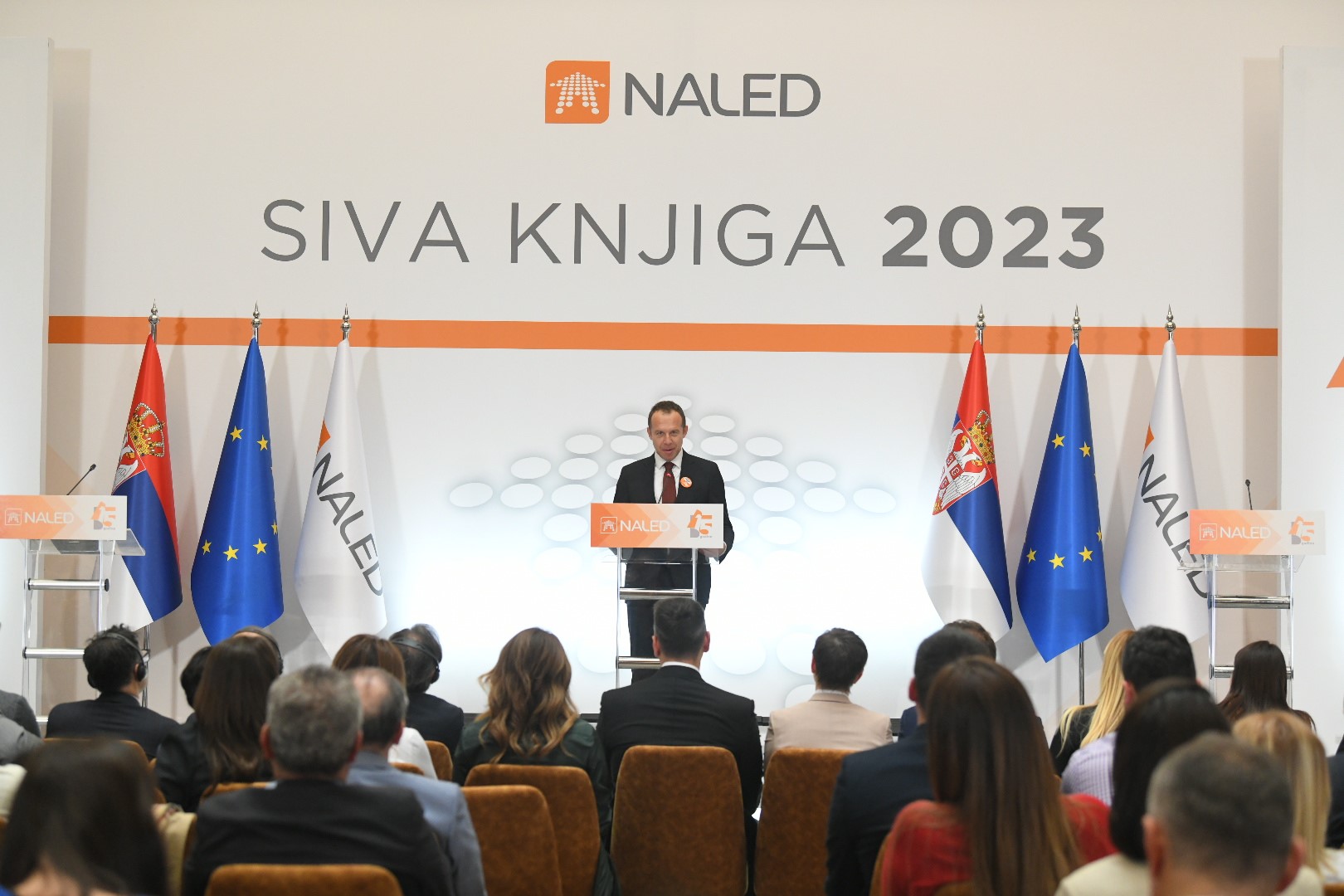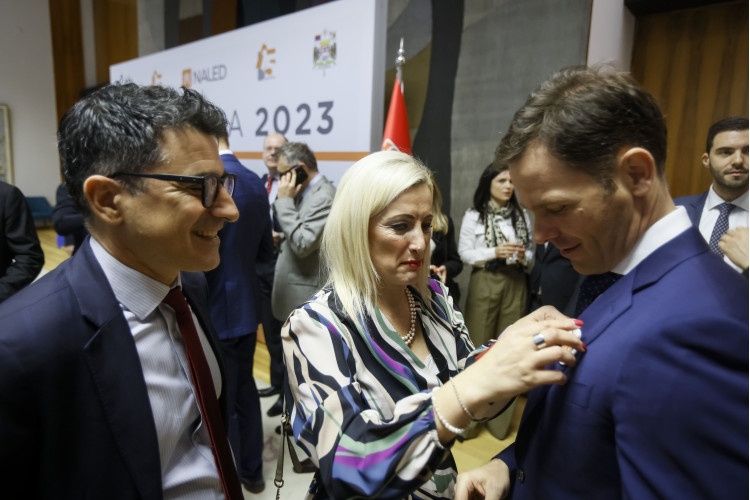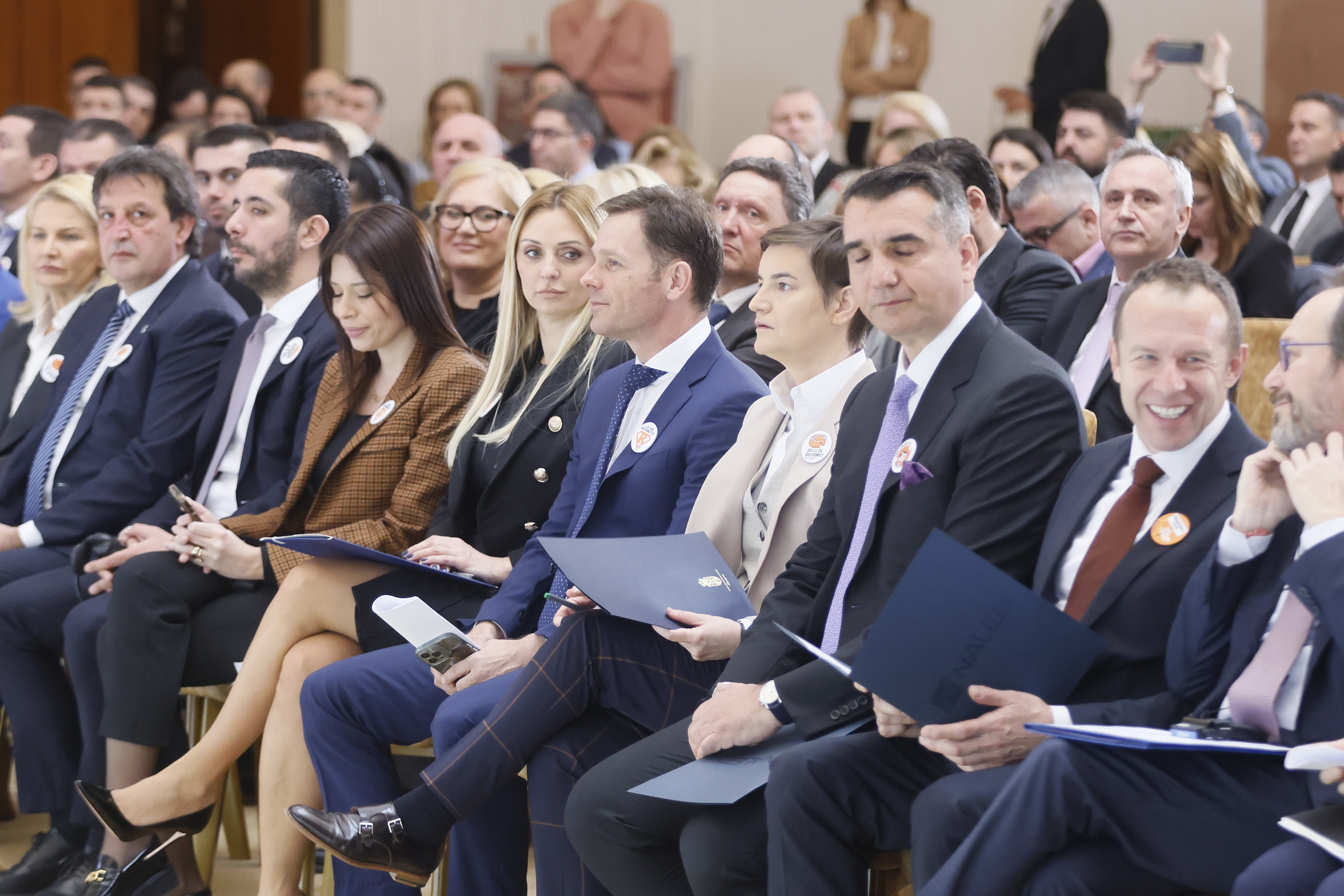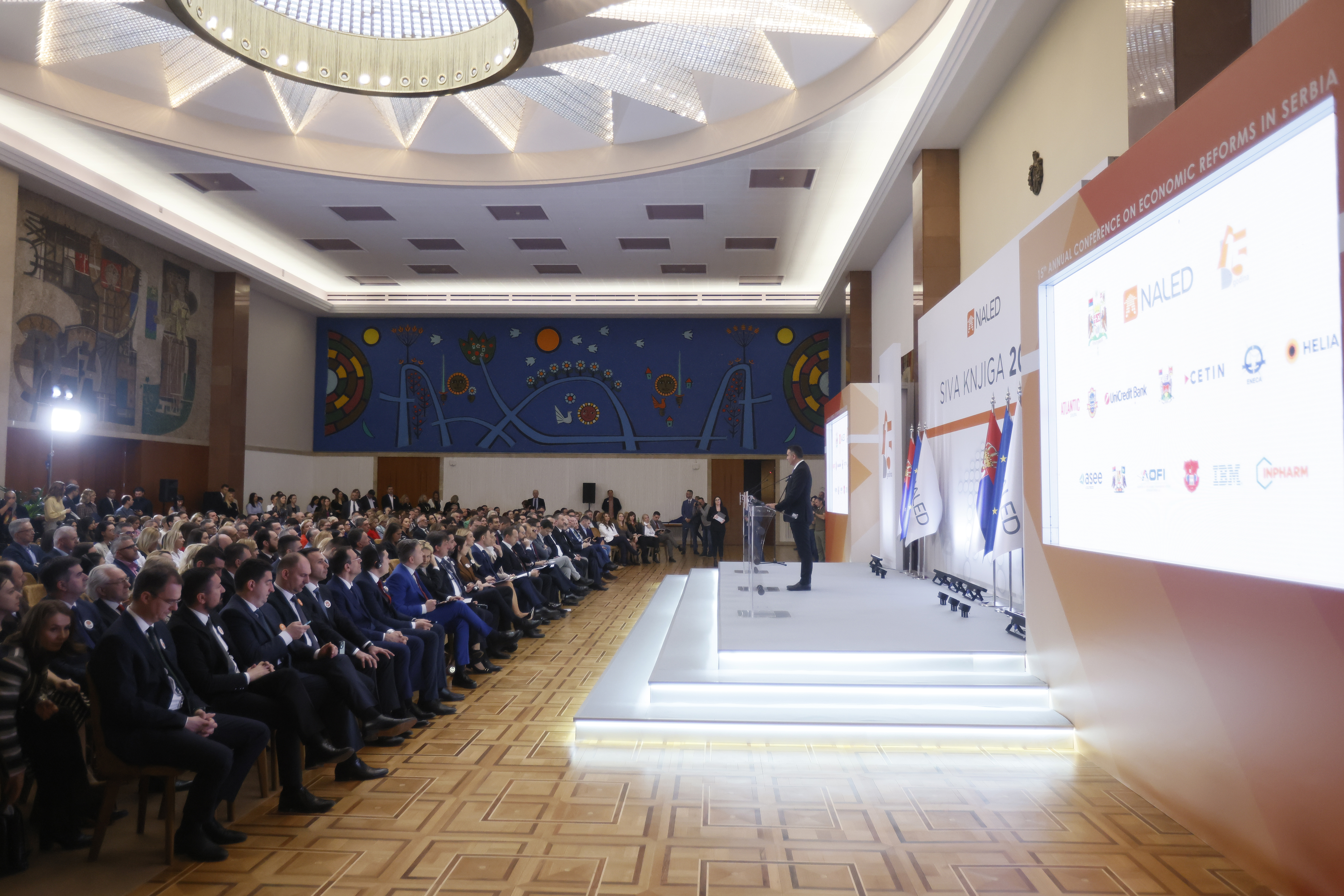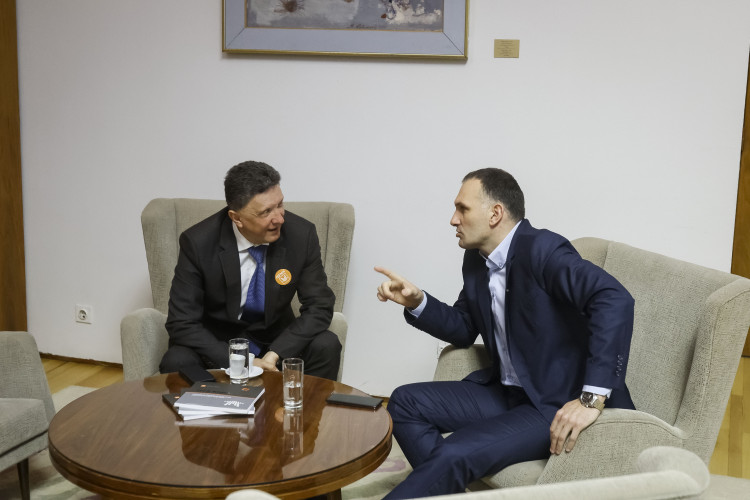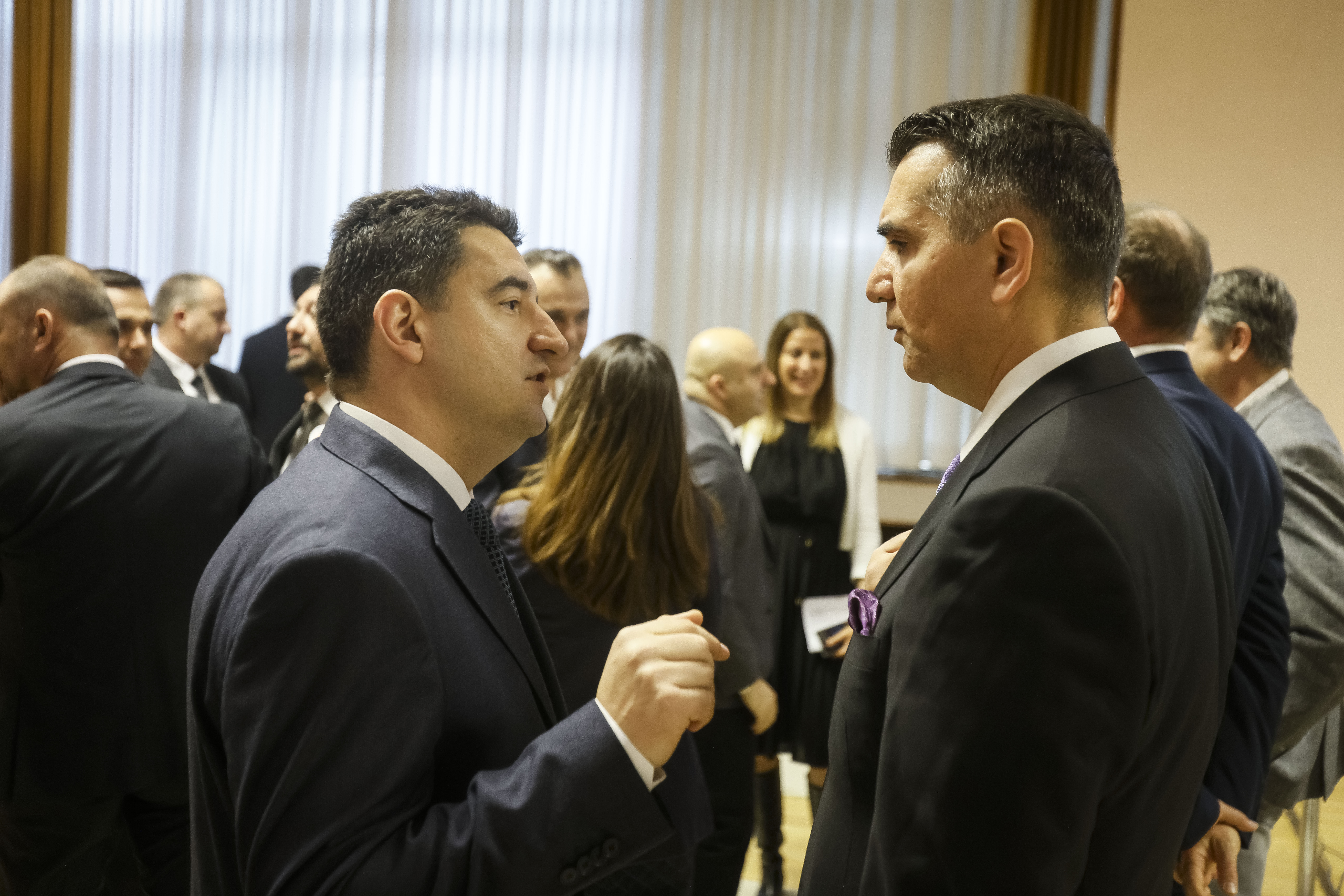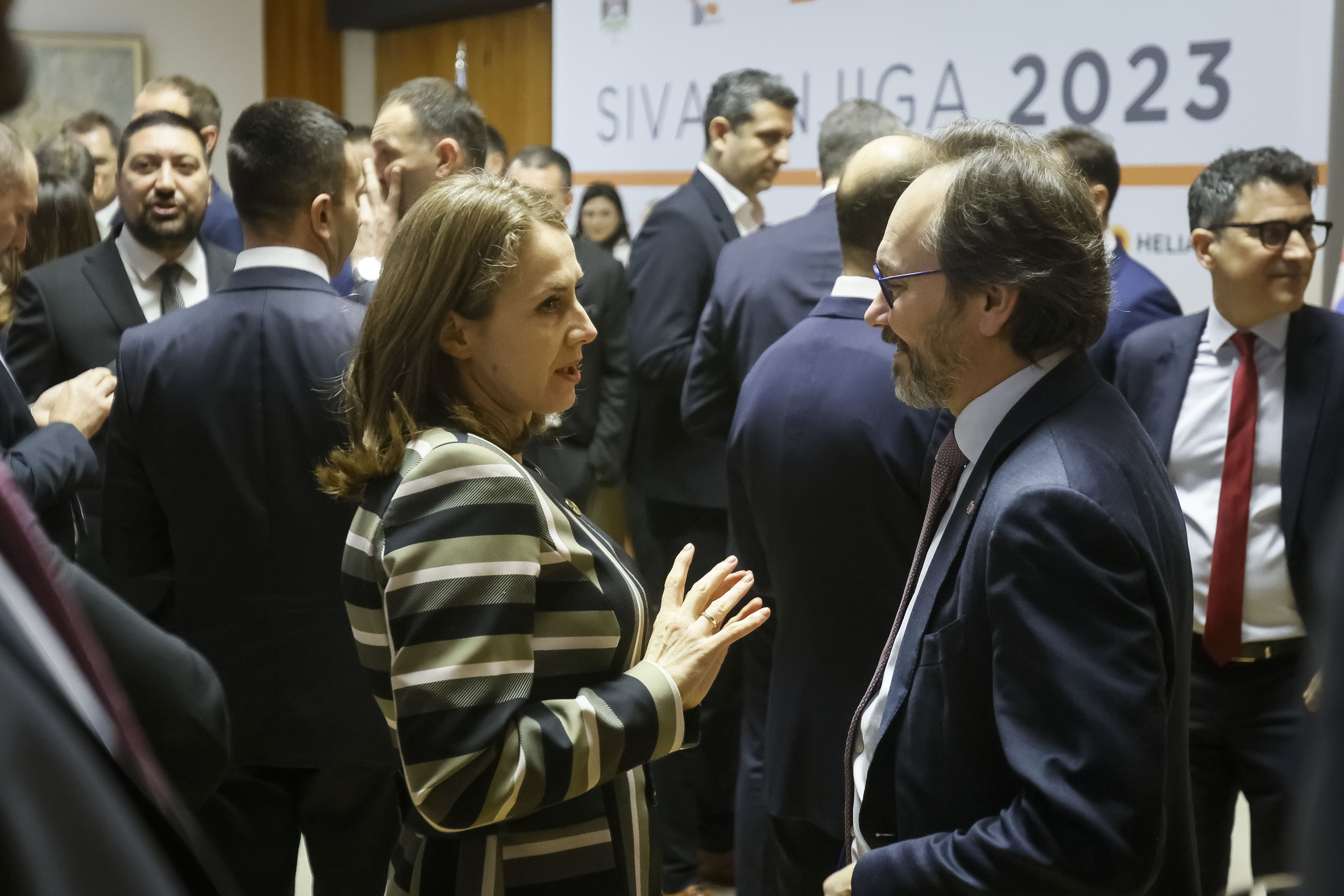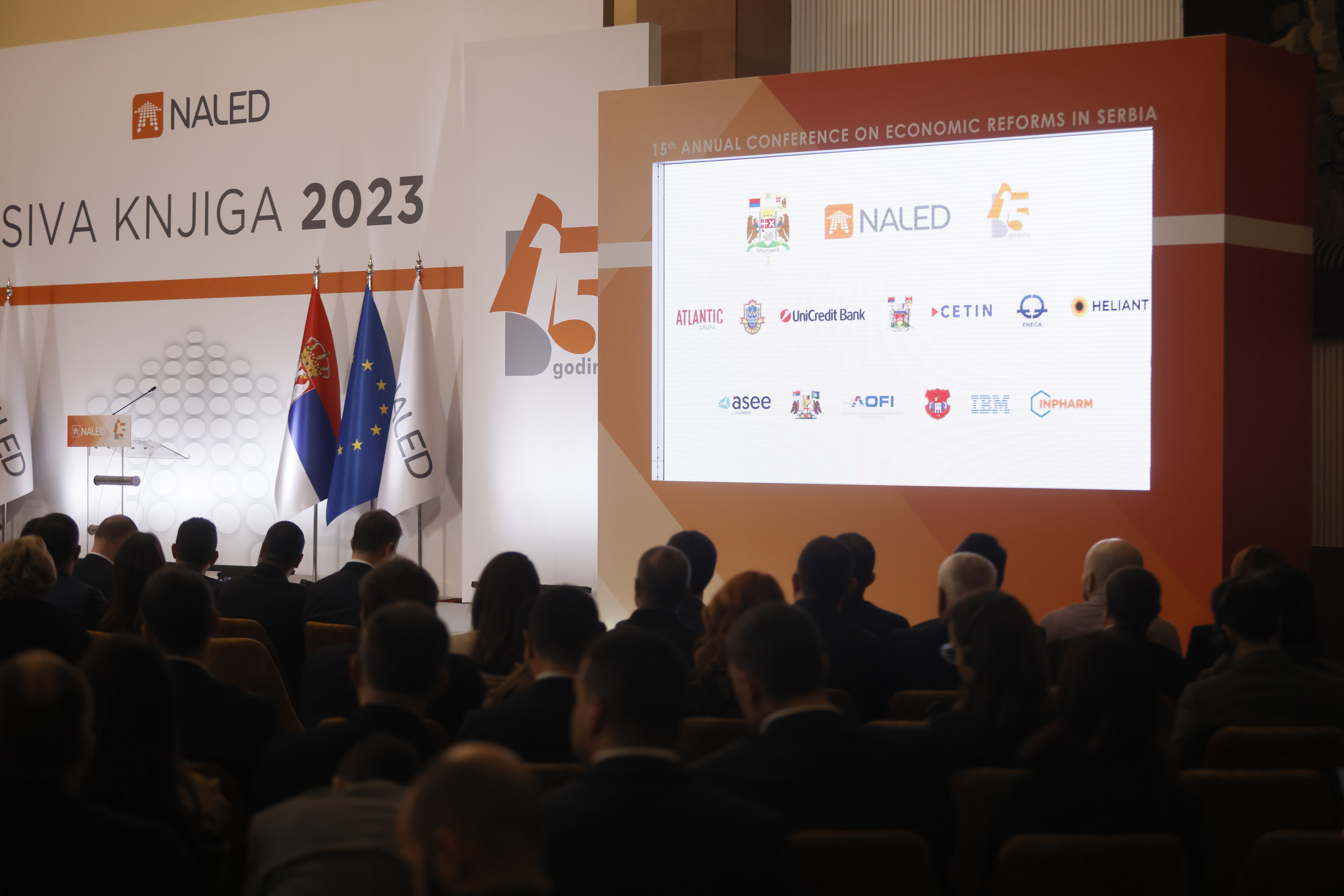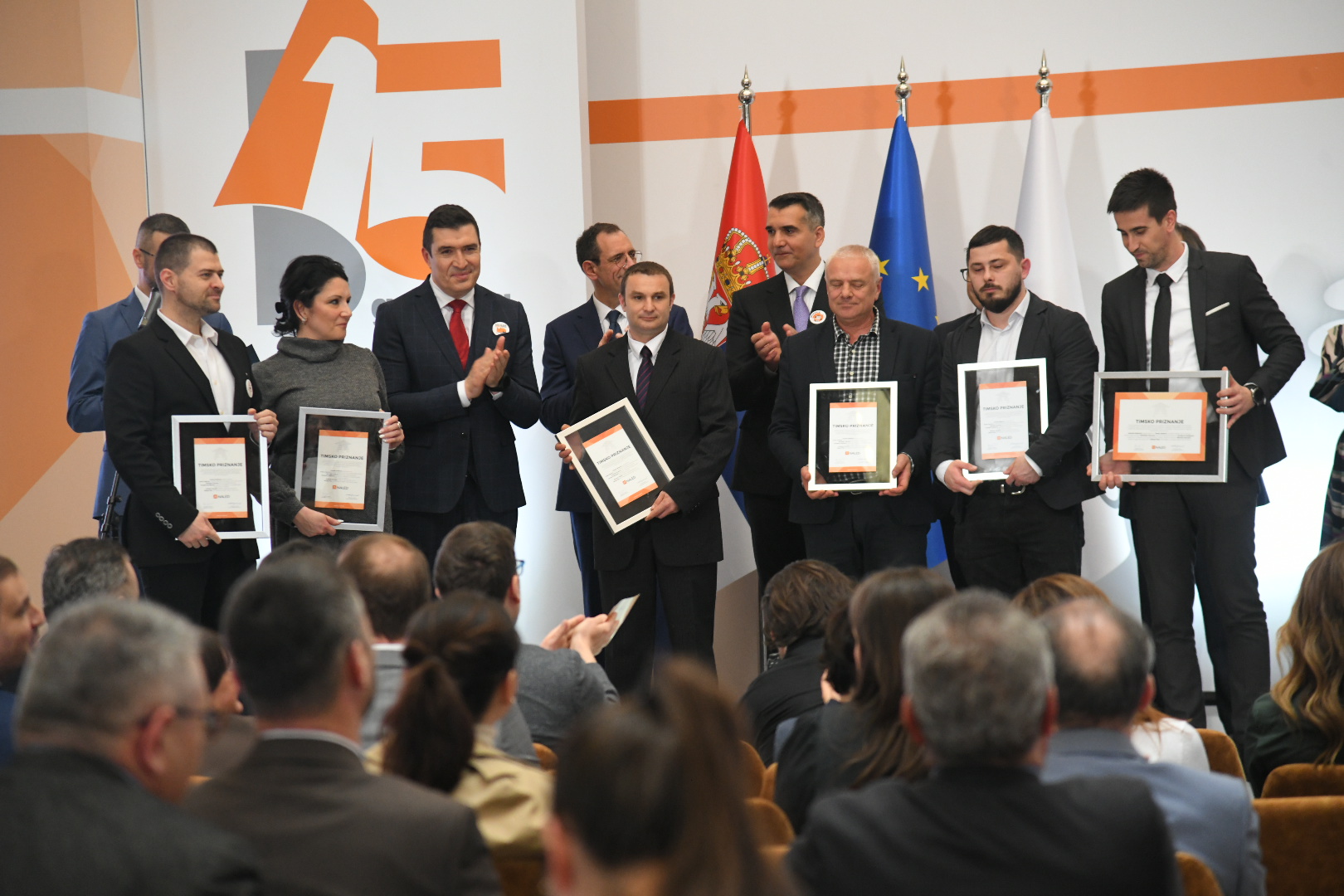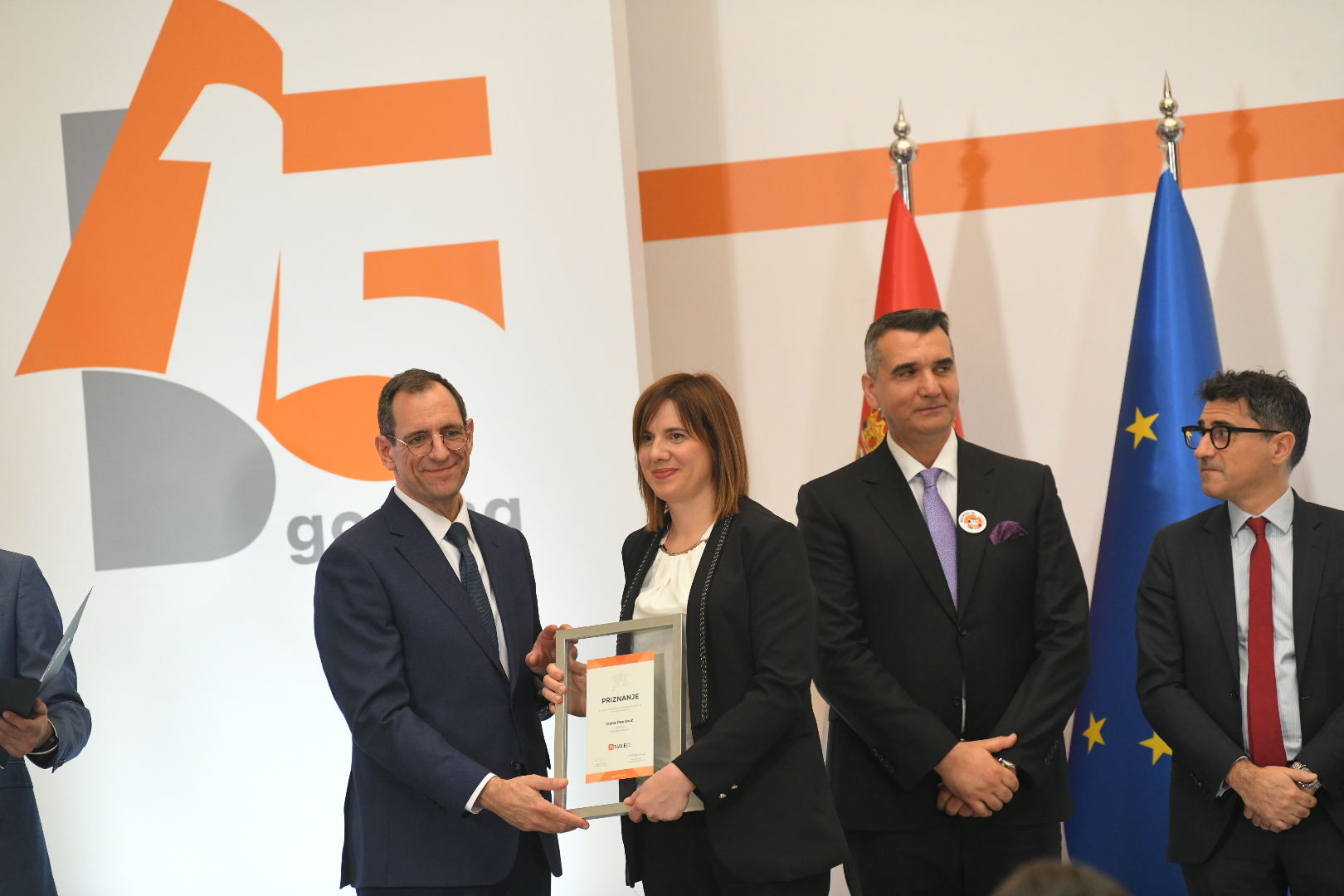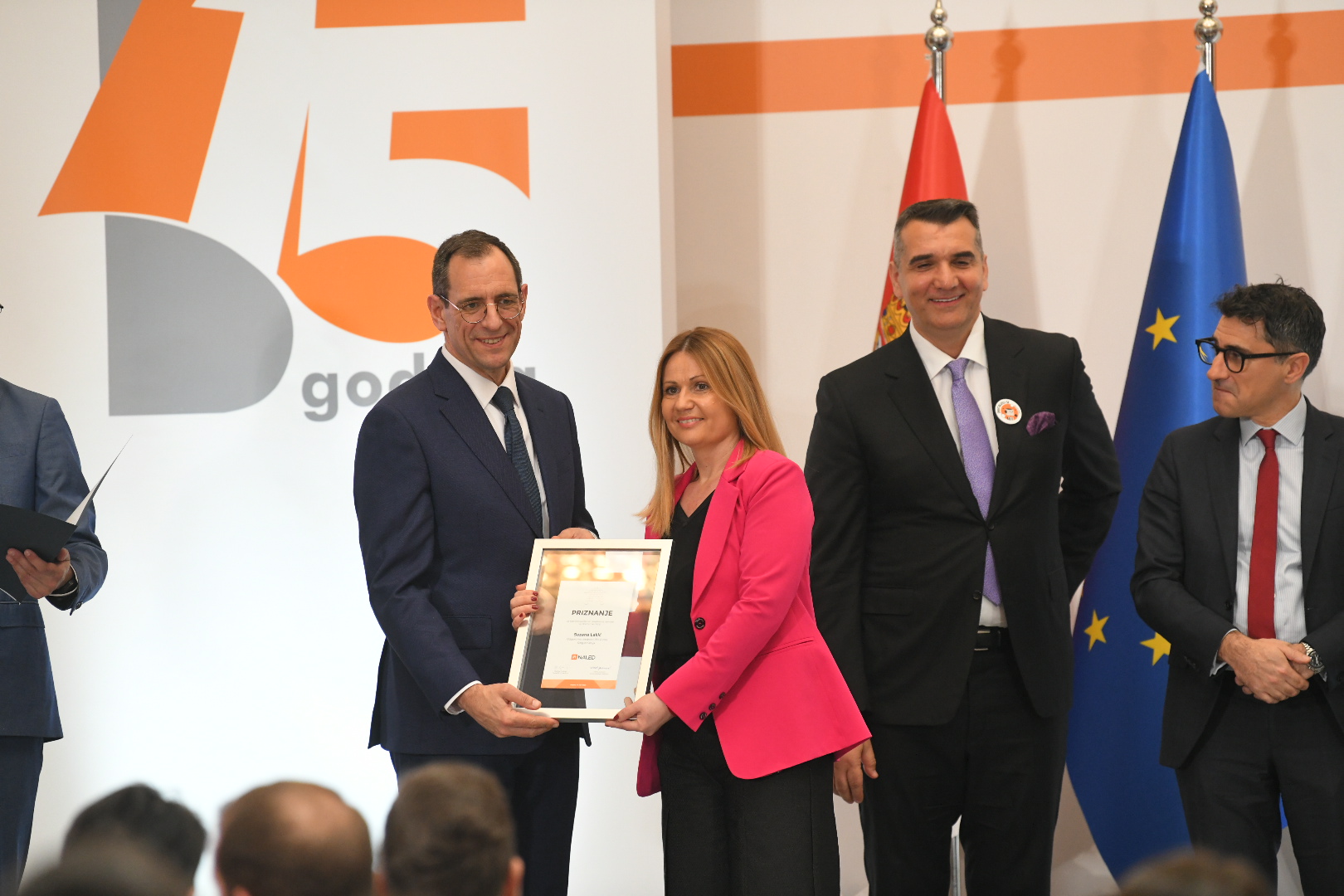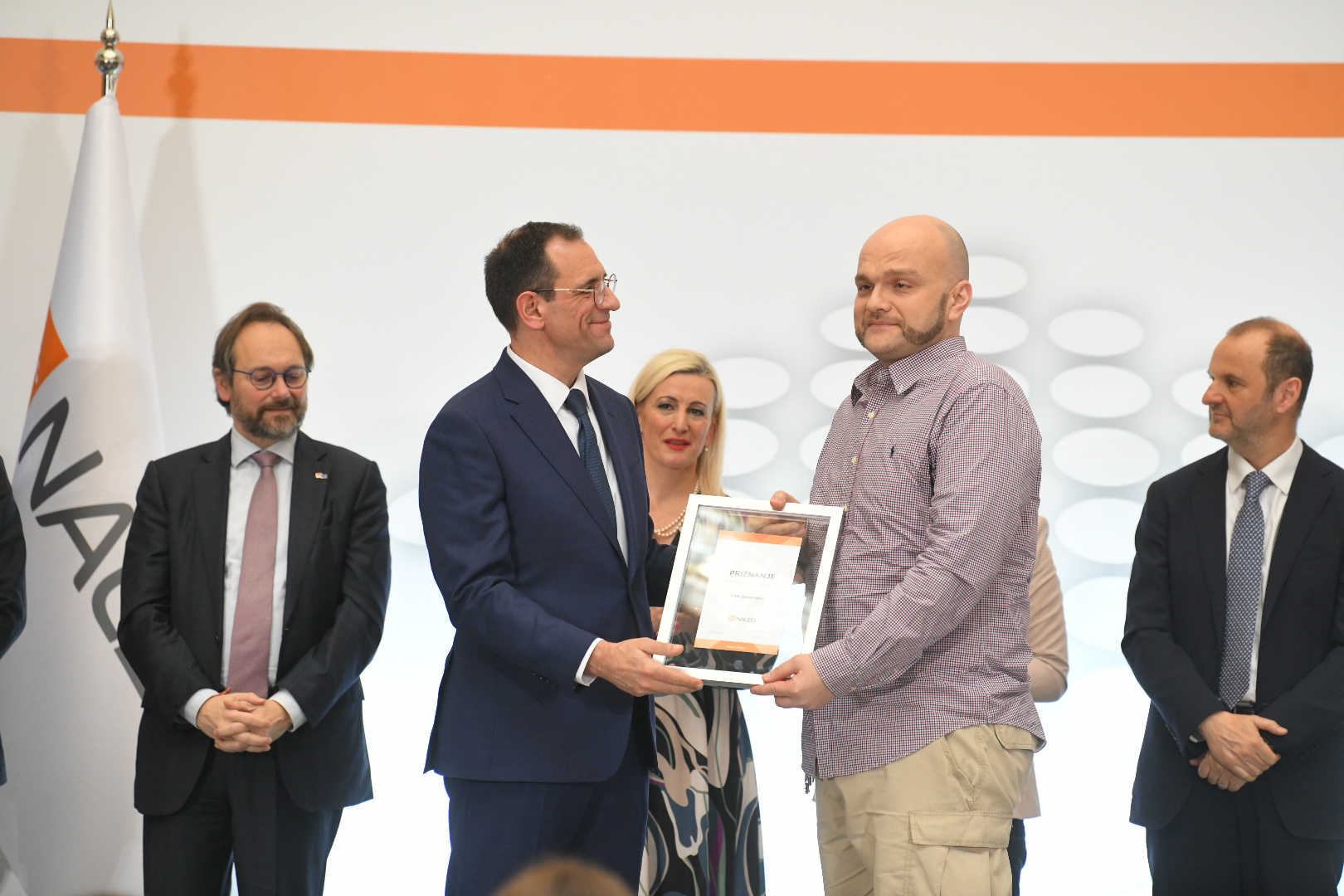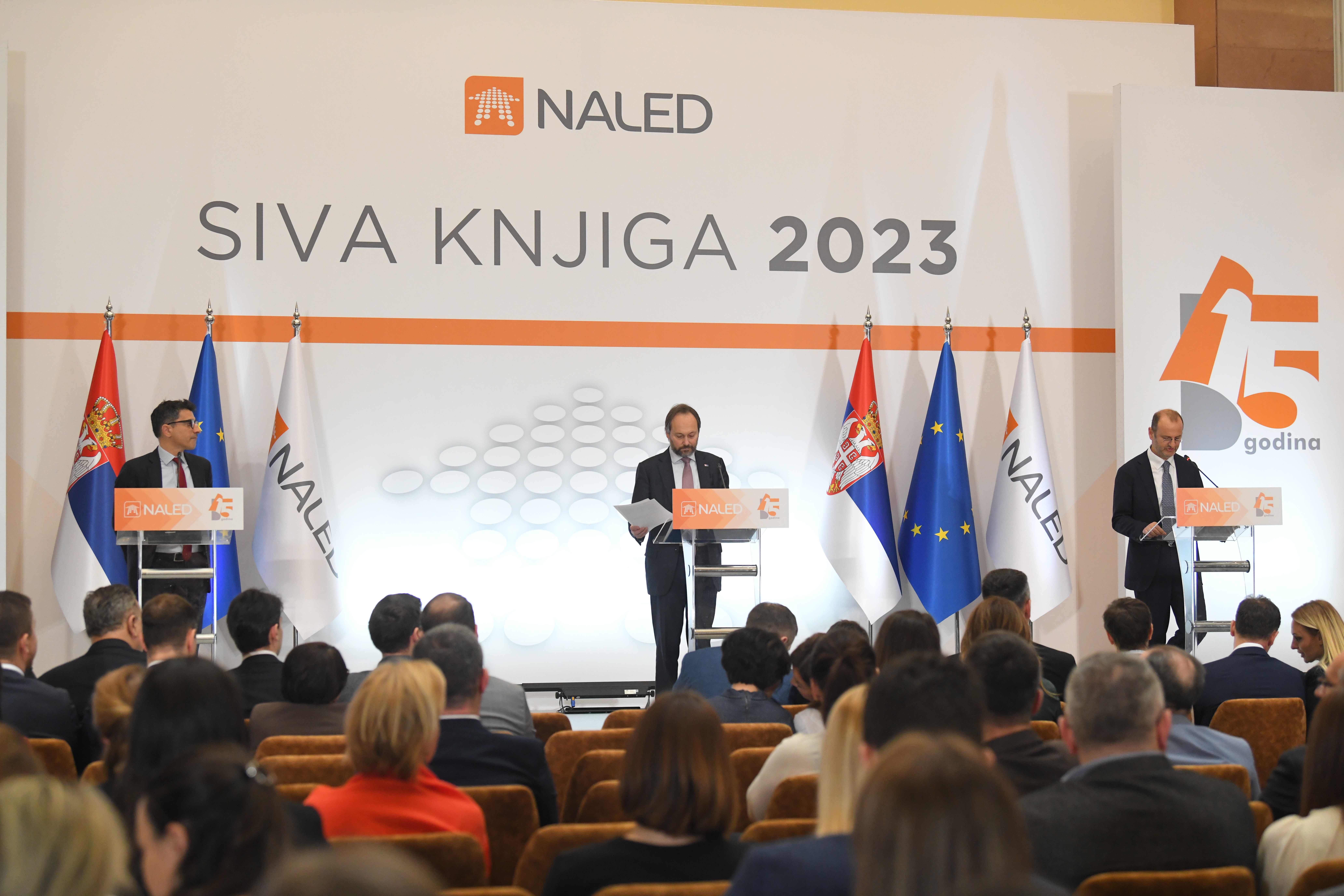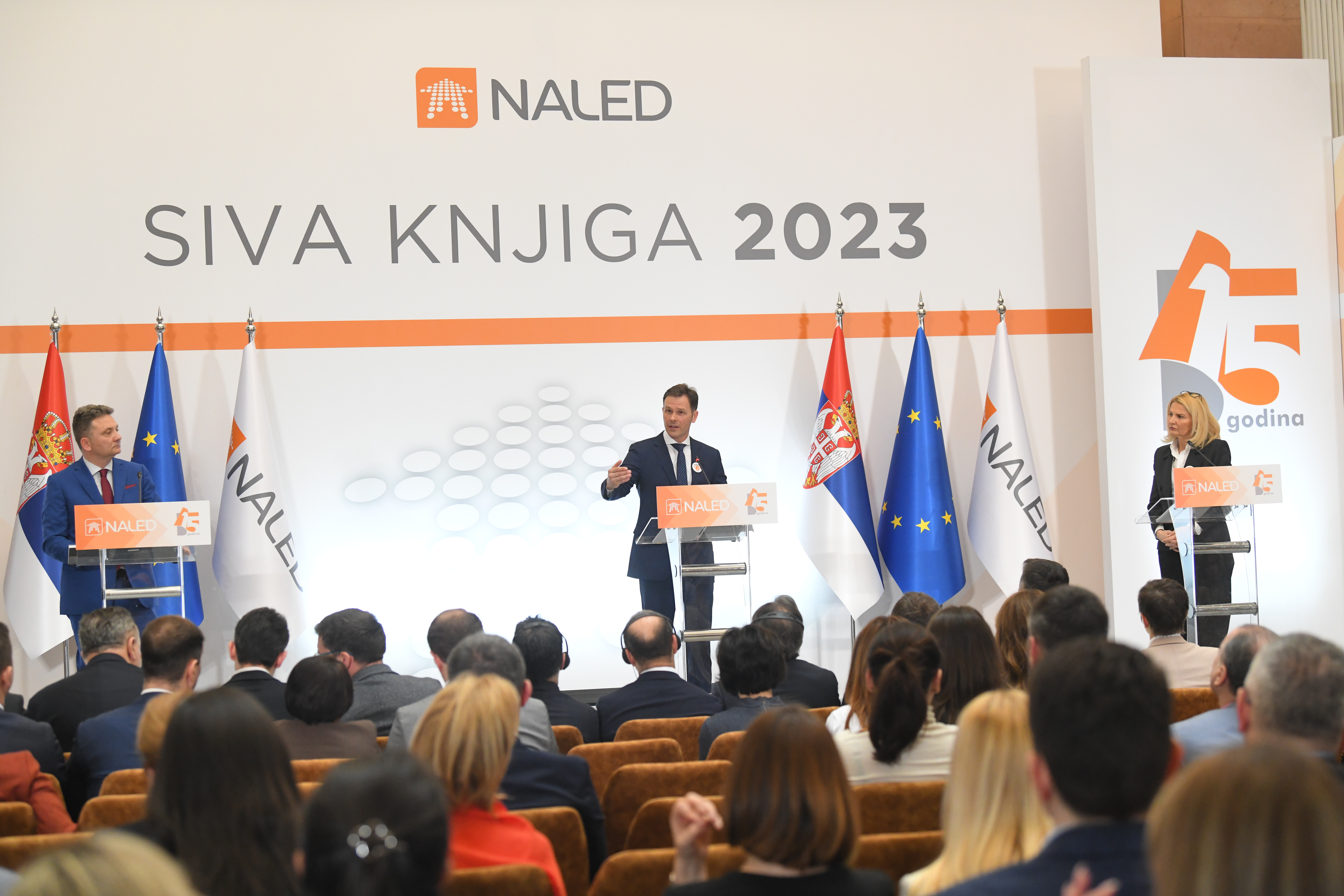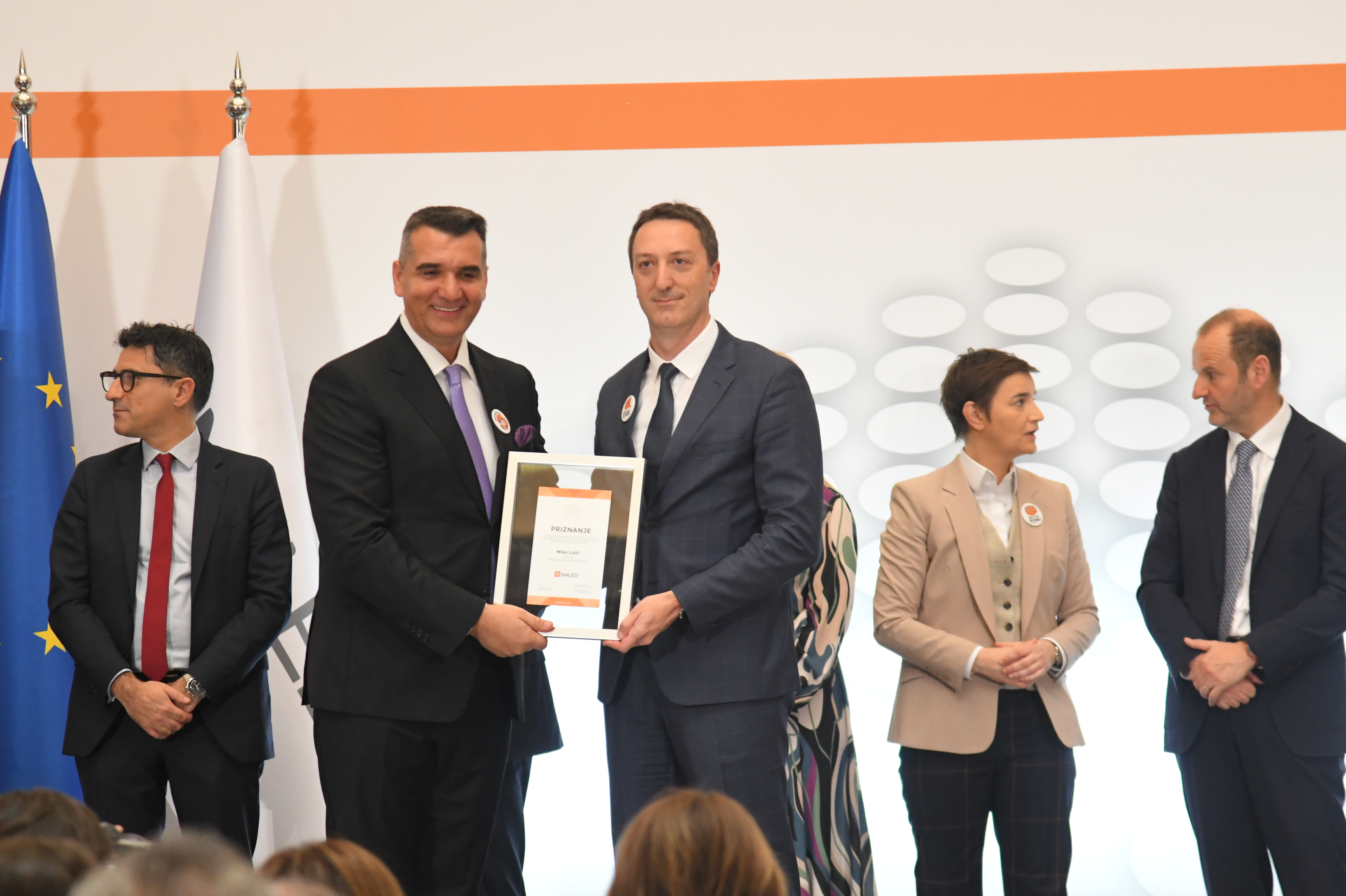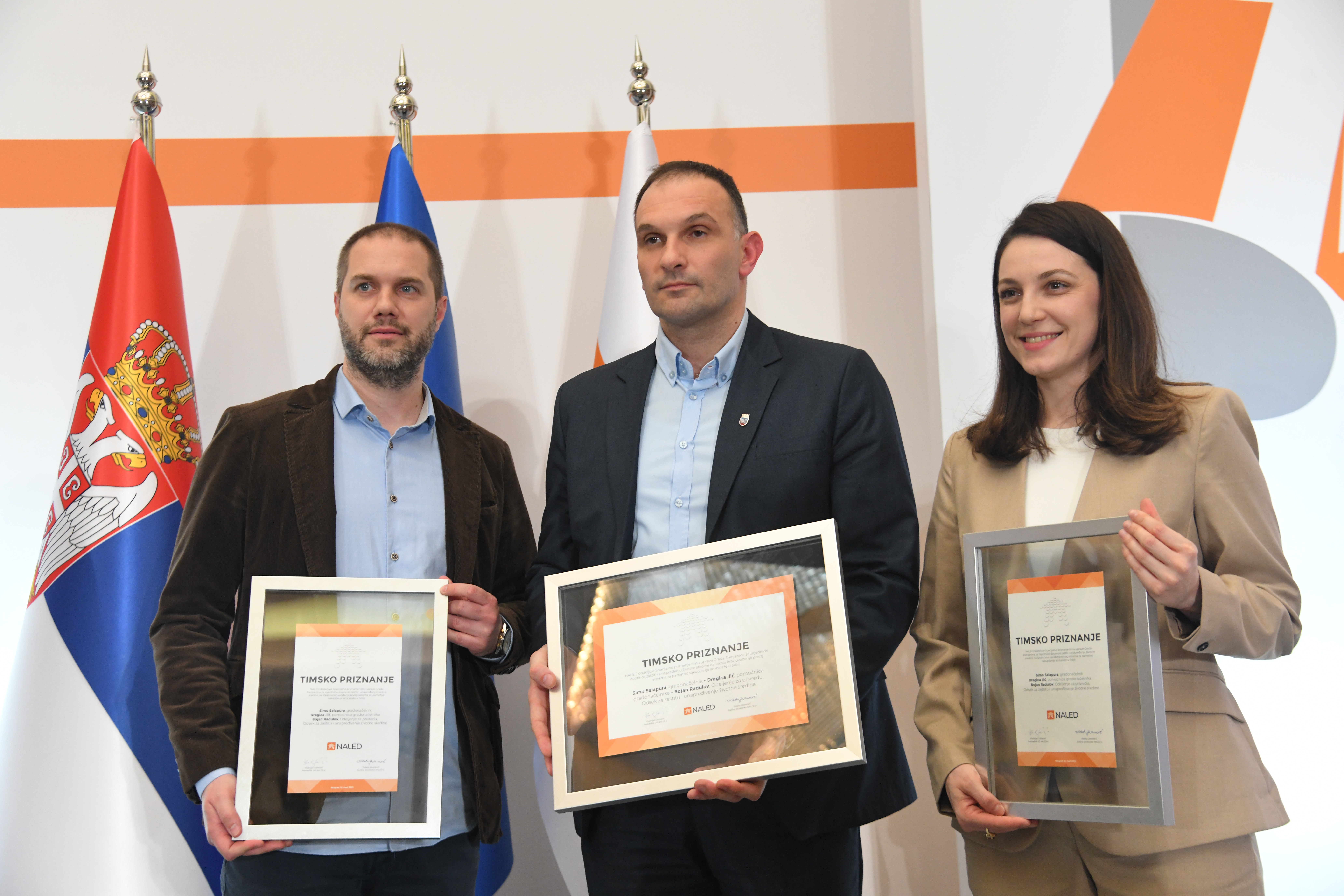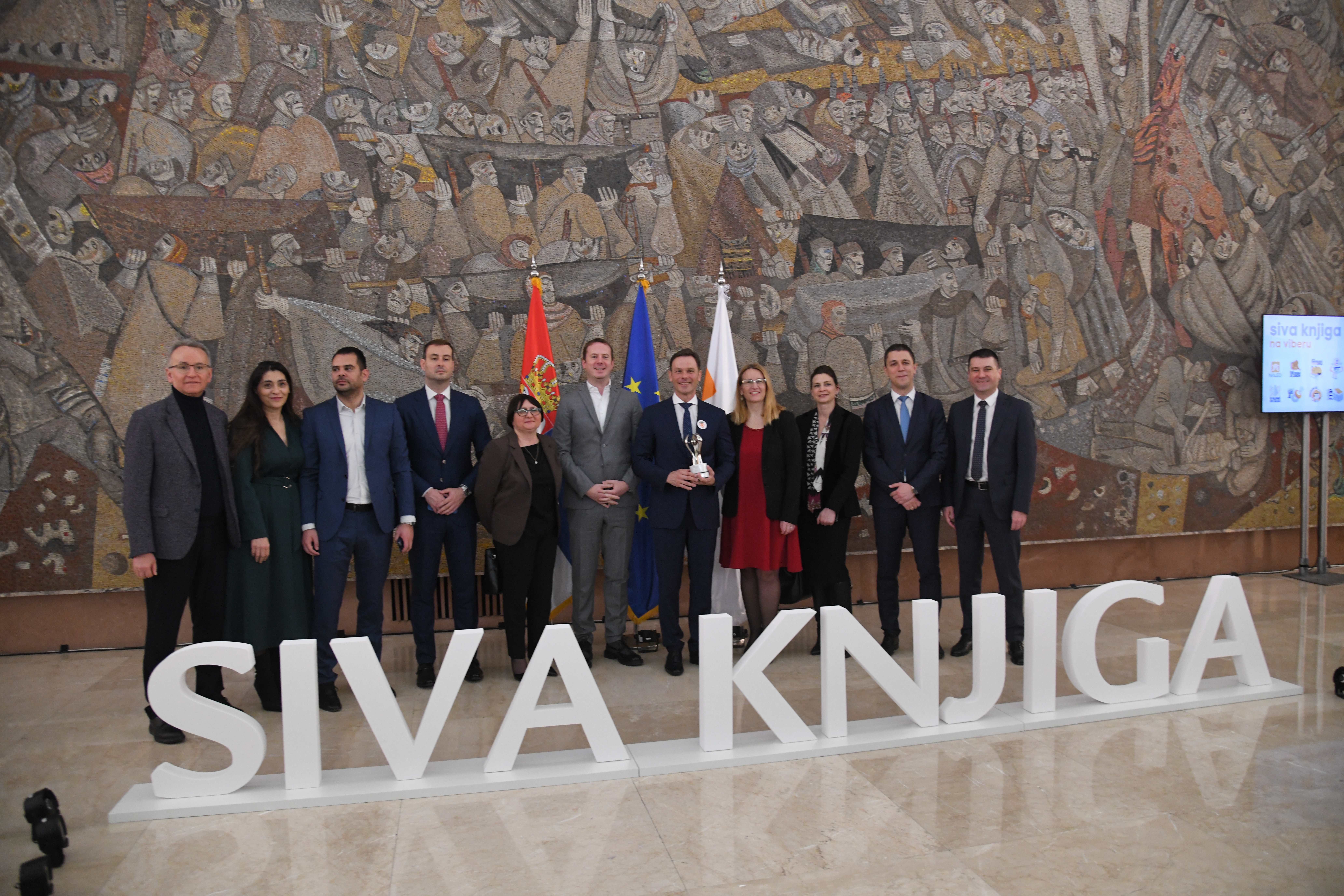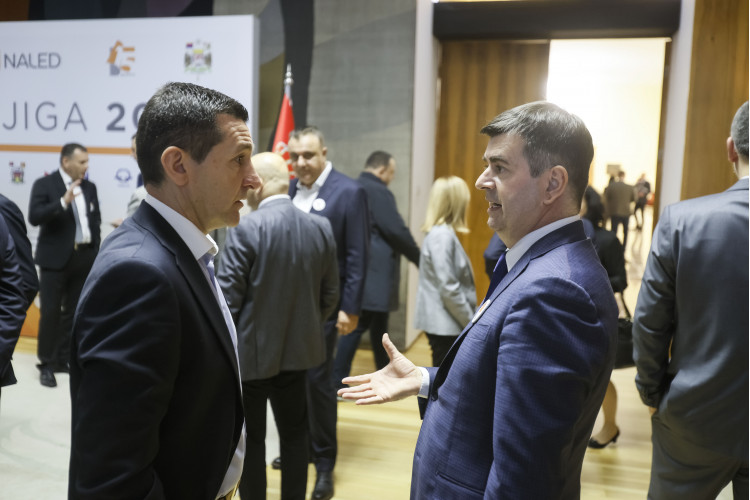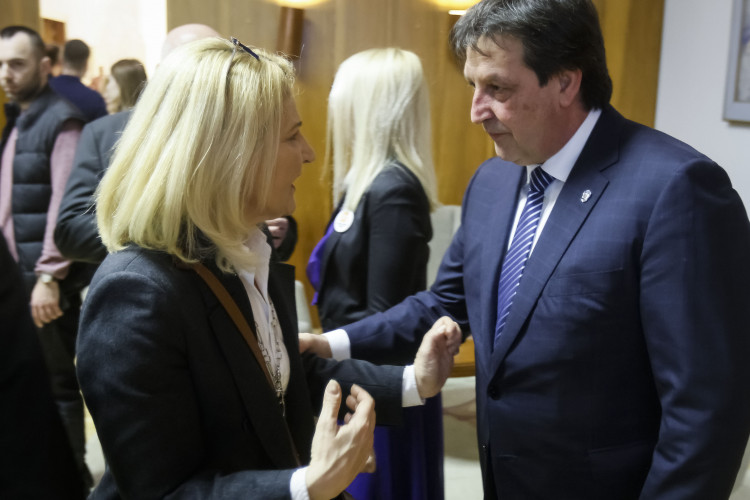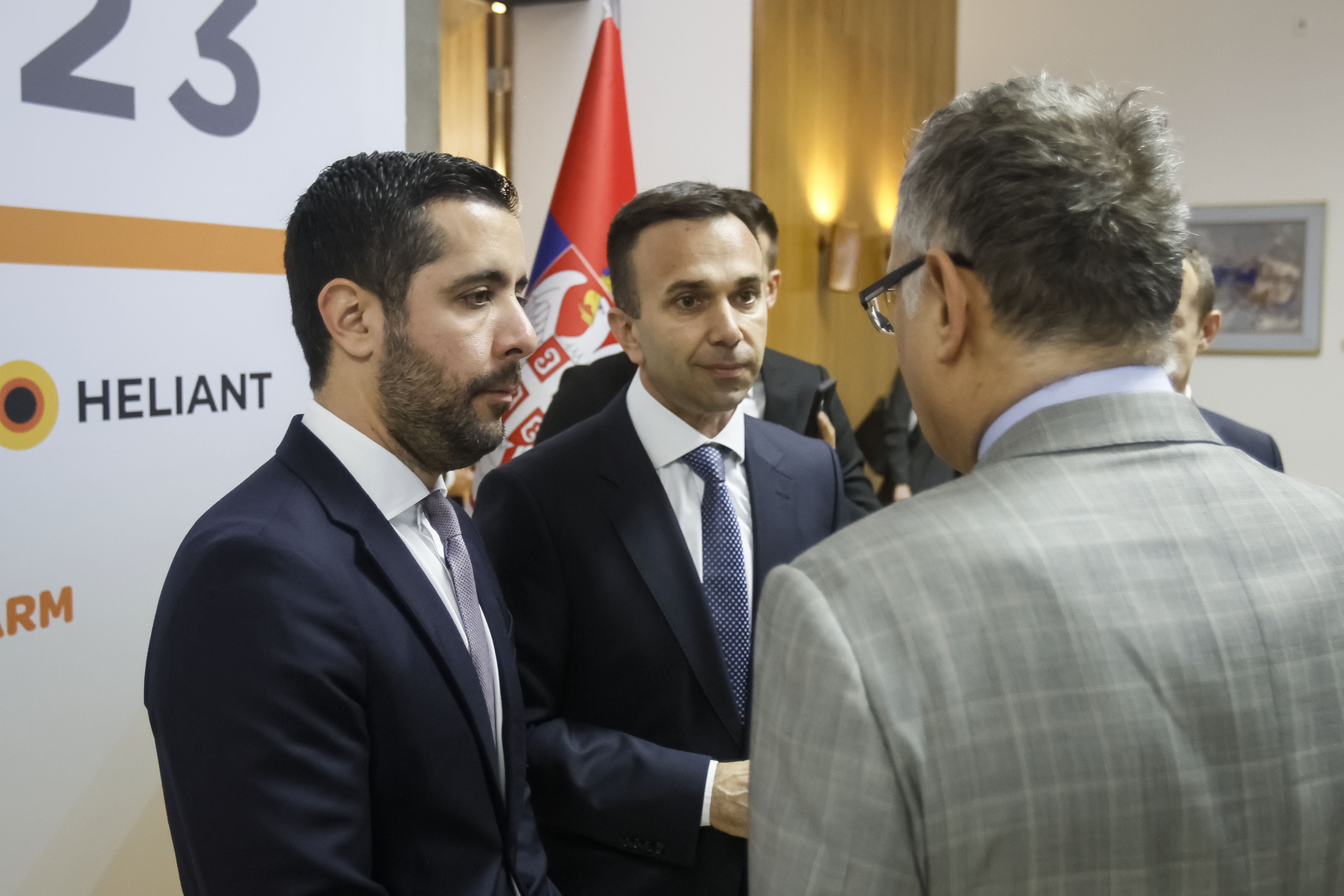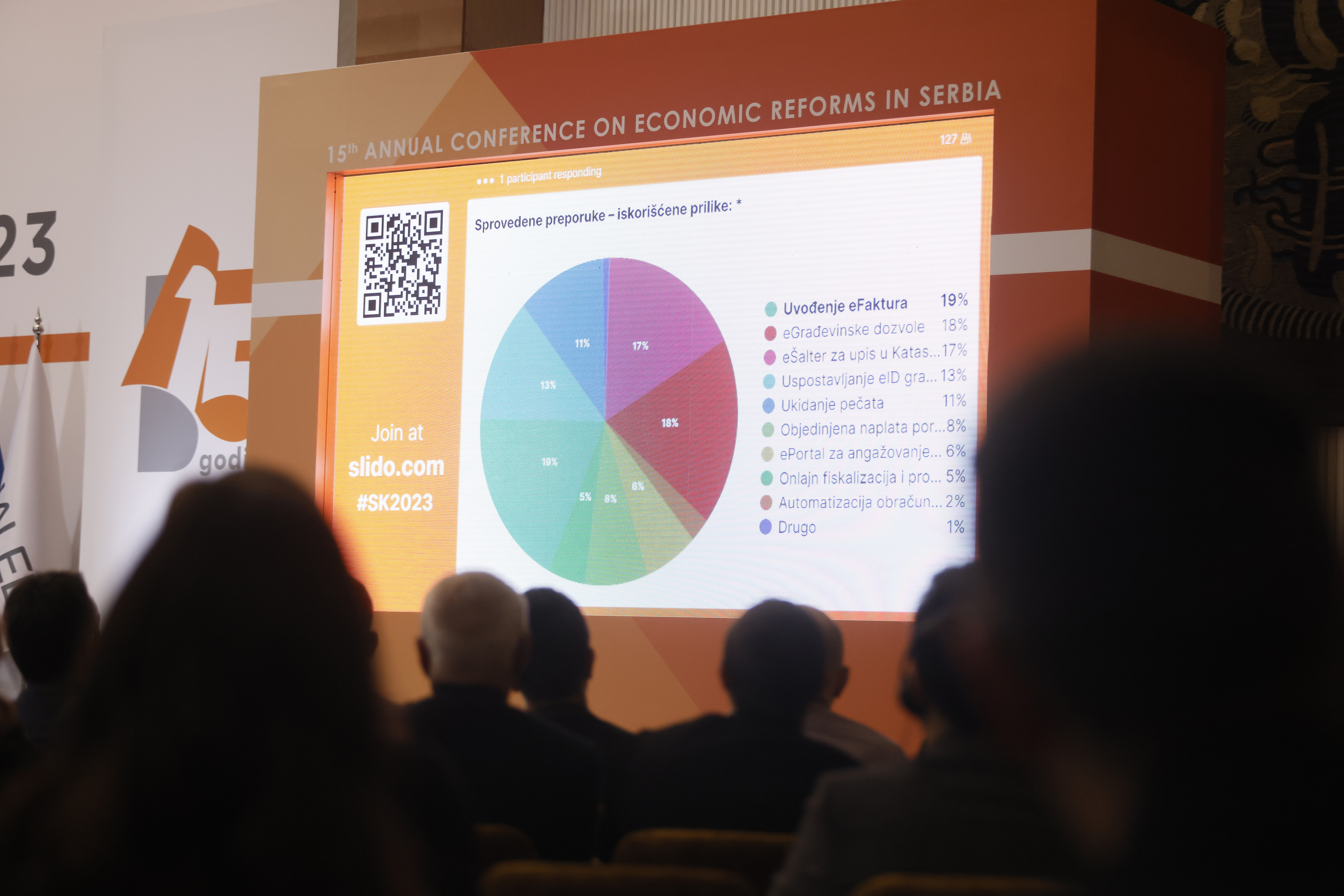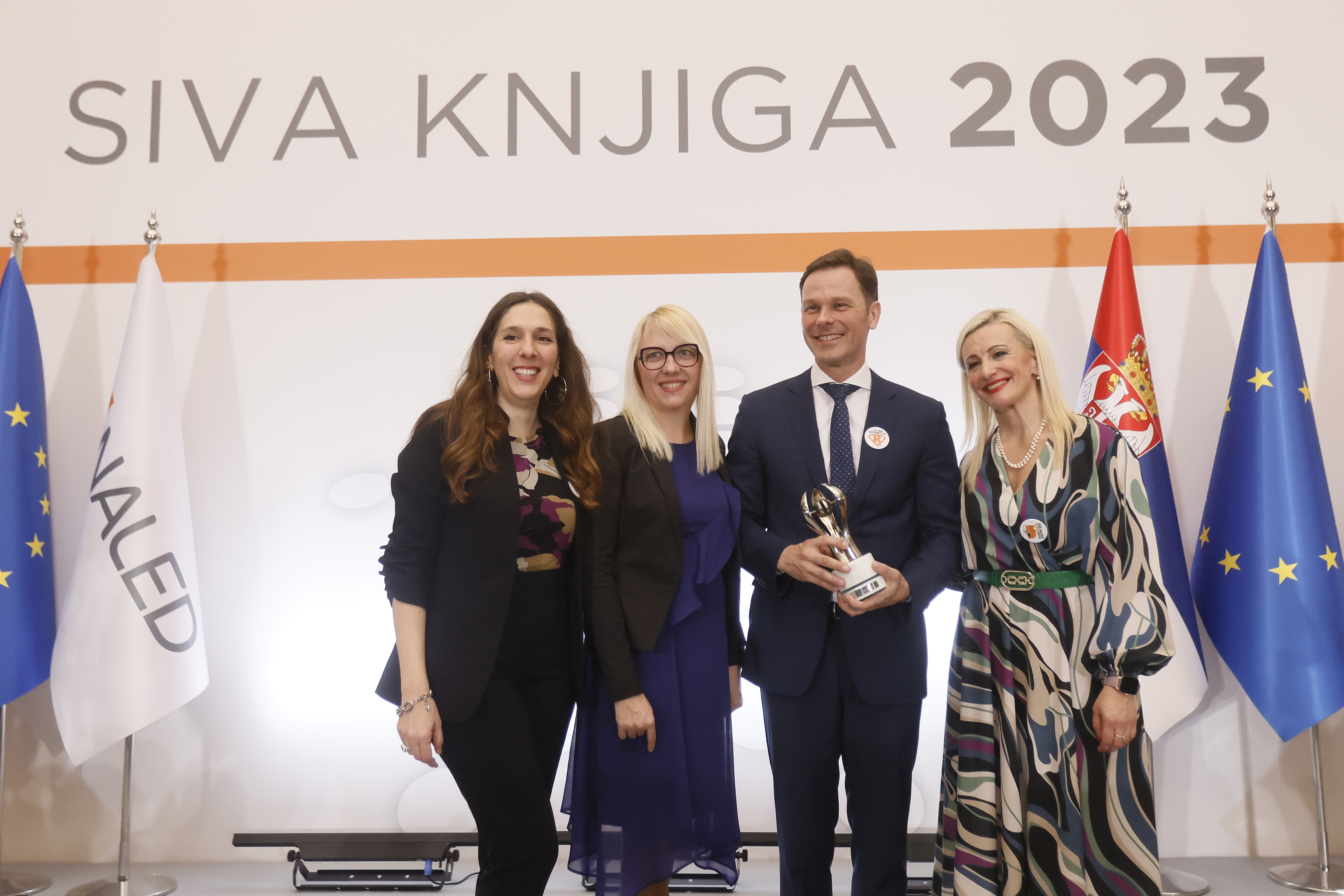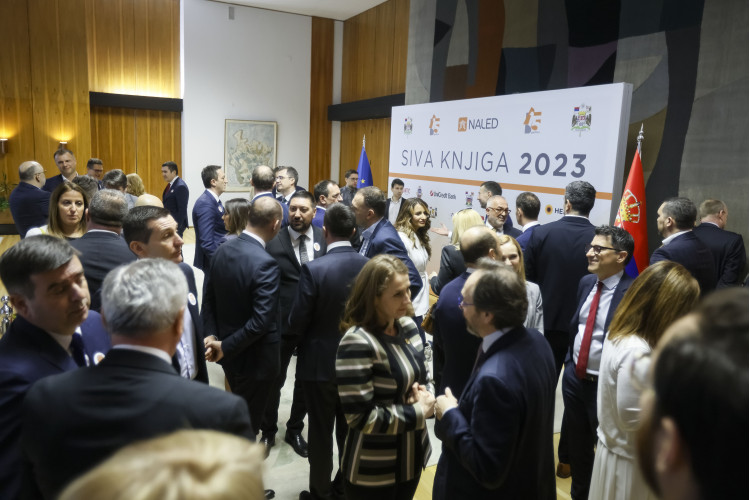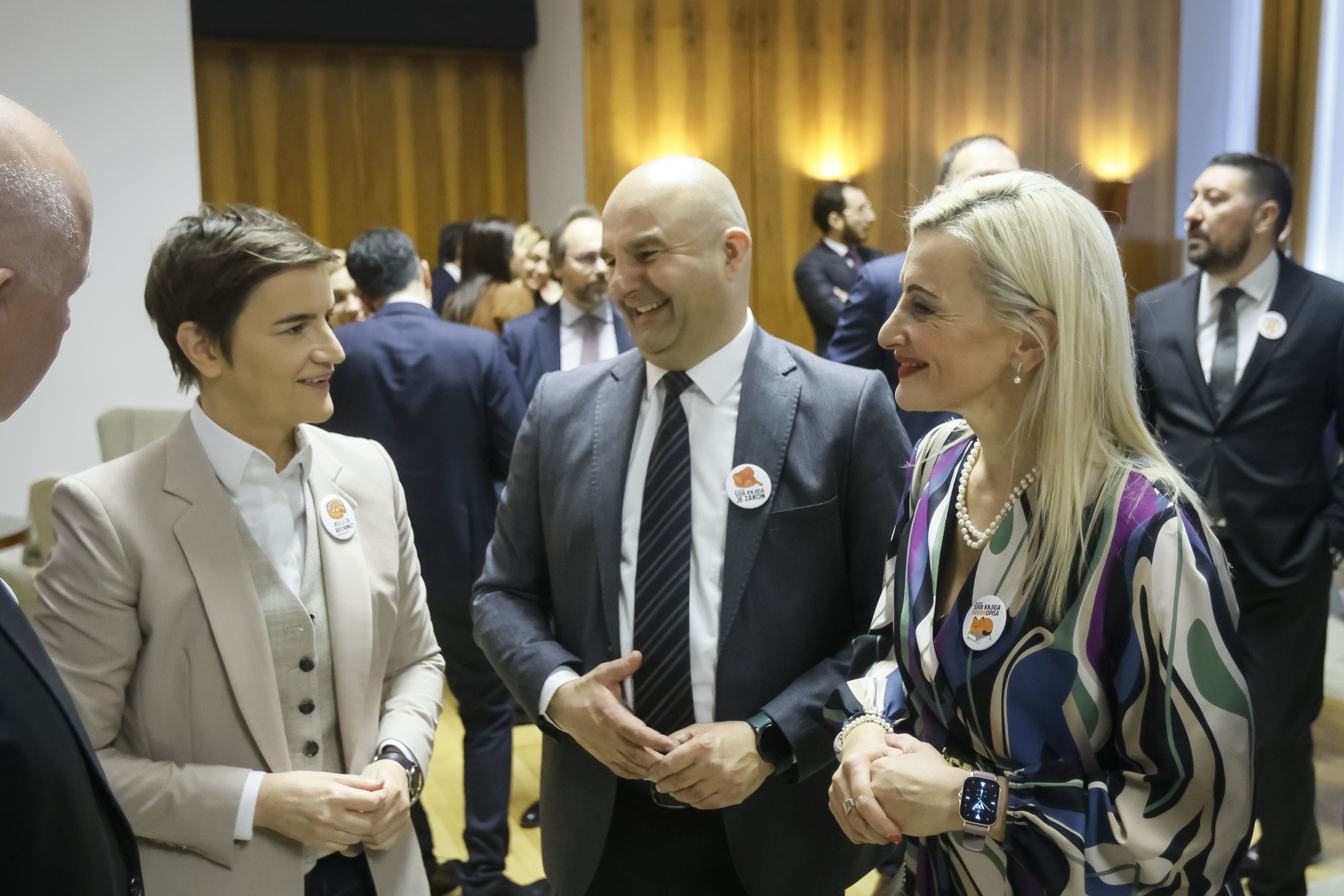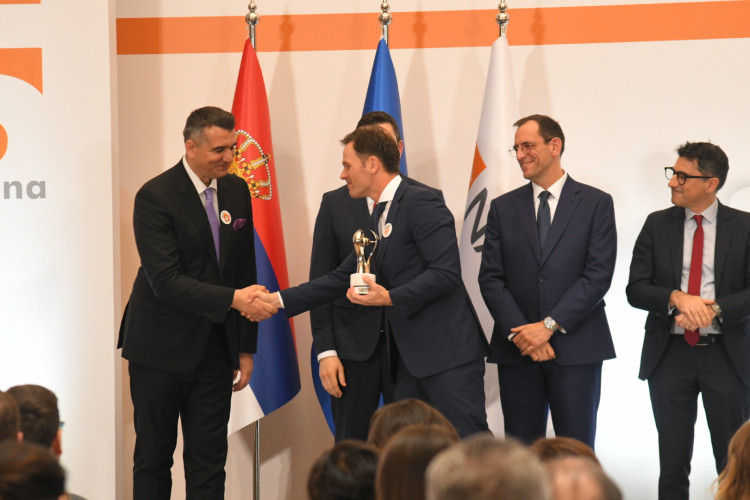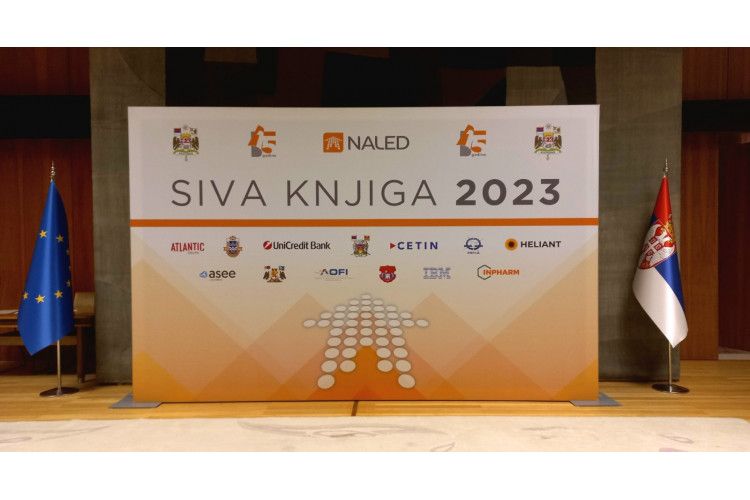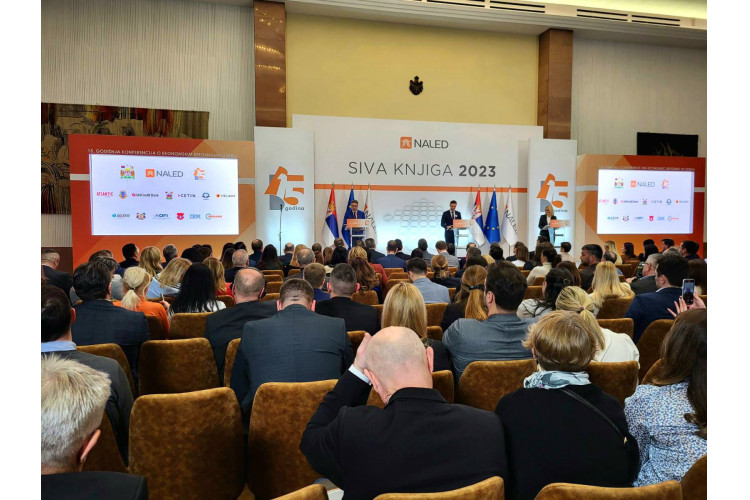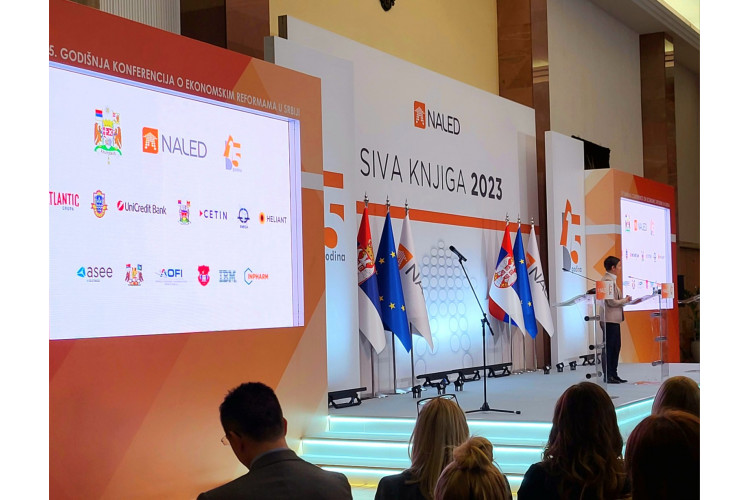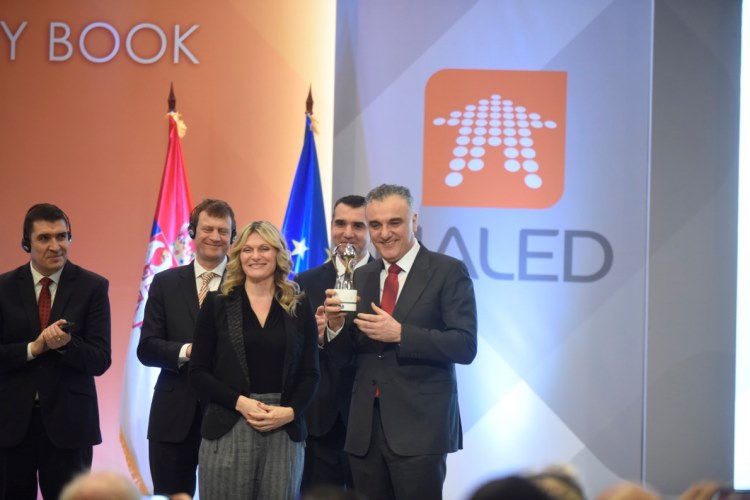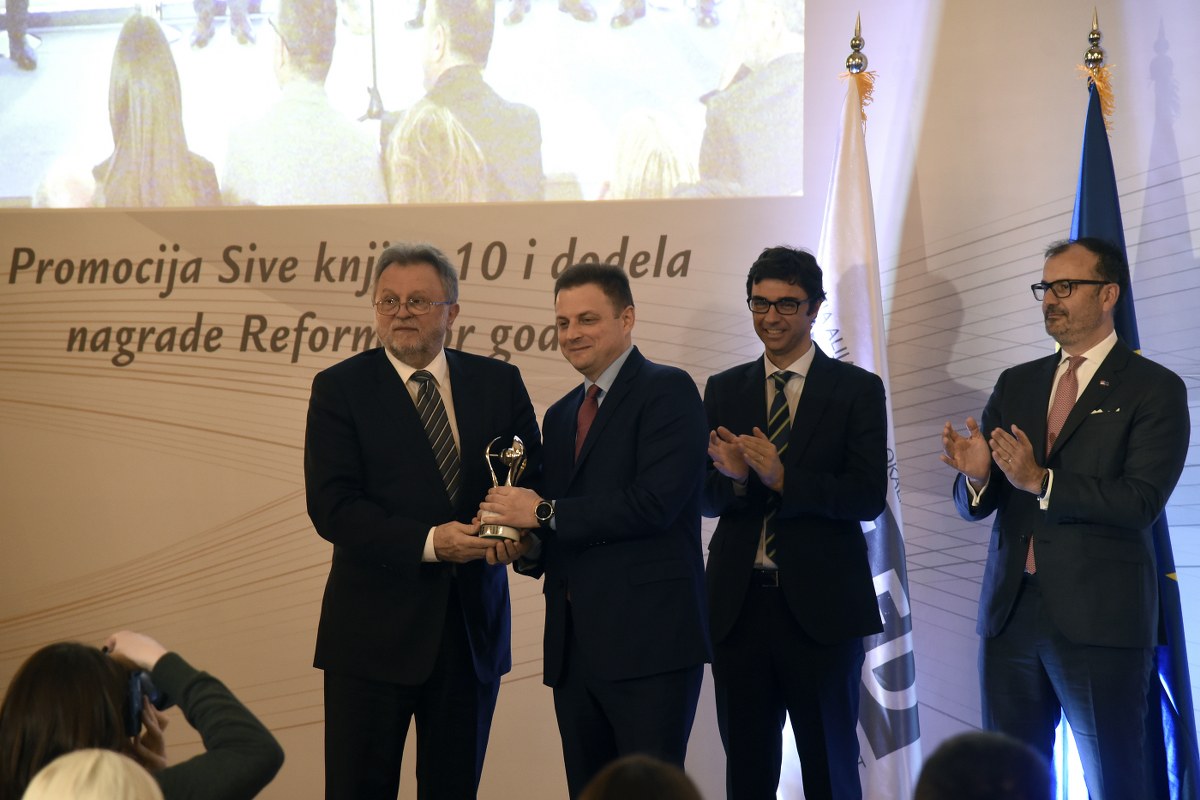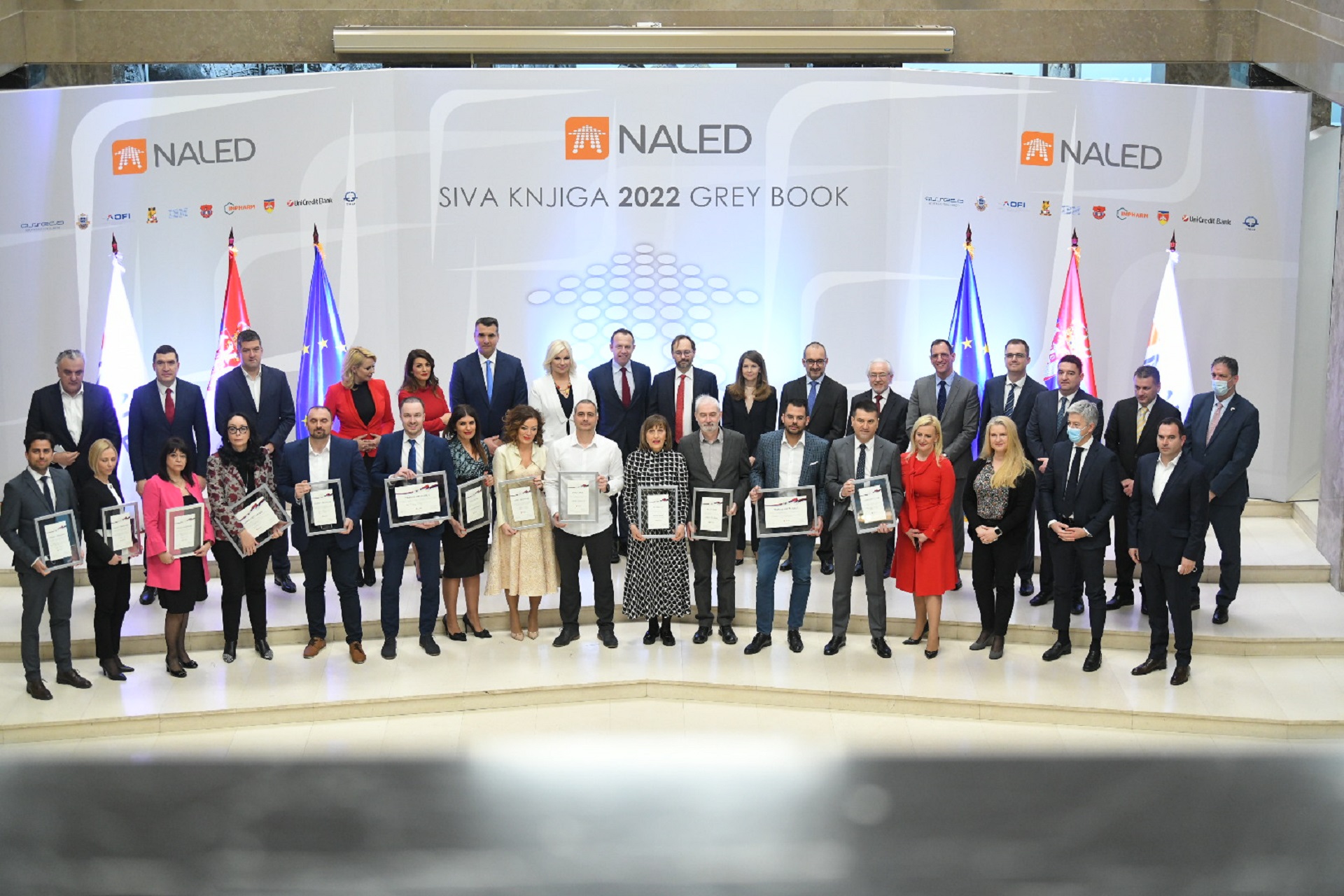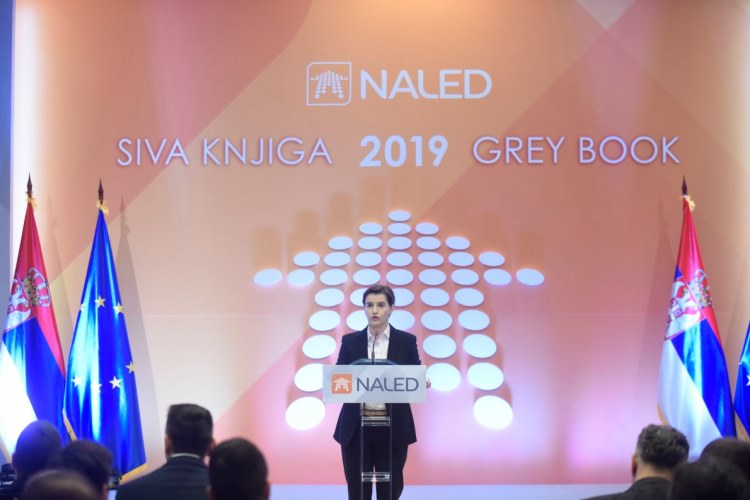The Top Reformer award goes to Minister of Finance Siniša Mali
 Minister of Finance Siniša Mali is the Reformer of the Year for 2022. NALED's special award was given to the Minister for the introduction of eFiscalization and eInvoices, systemic reforms that will improve the transparency of financial transactions, tax collection and contribute to the suppression of shadow economy in Serbia.
Minister of Finance Siniša Mali is the Reformer of the Year for 2022. NALED's special award was given to the Minister for the introduction of eFiscalization and eInvoices, systemic reforms that will improve the transparency of financial transactions, tax collection and contribute to the suppression of shadow economy in Serbia.
Award ceremony took place at NALED’s annual conference, where the 15th edition of the Gray Book,with 100 recommendations to the Government of Serbia for the simplification of administrative procedures, was presented. The attendees validated NALED's decision by ranking eInvoices as the most significant Gray Book, while listing the introduction of a special eCarton into the private and public healthcare systems as the biggest missed opportunity.
The pace of reform was maintained during the last year, despite the prolonged wait for the formation of the government; 12 recommendations from the Gray Book were resolved, seven in full and five in part. Dejan Đokić, president of NALED's Executive Board, said: "We are very pleased that two long-standing measures to combat the shadow economy, such as eInvoices and digital fiscalization, have joined the group of key reforms."
Among the resolved recommendations, were the regulation of the tax treatment of freelancers, the optimization of the registration of used motor vehicles, the establishment of a single electronic place for the registration of business entities in the APR registers, and the definition of the status of startups and business angels.
According to Đokić, for the first time, 15 priority recommendations for relevant institutions were singled out. Among them are the reform of non-tax levies and the abolition of parafiscals, the expansion of the law on seasonal employment, the establishment of a functional eAgrar platform, the abolition of the conversion fee and the digitization of the legalization procedure. In addition, 22 recommendations were marked with the EU badge, which indicated the importance of their adoption for the improvement of the European integration process. Reducing the fiscal burden on the lowest wages, introducing a unified collection of taxes and contributions for entrepreneurs and green public procurement are just some of the steps that would bring us closer to closing the accession chapters.
- Together with NALED, we have been changing Serbia for the better, as well as the economic environment, for many years. The economic environment is important to everyone, as is the Gray Book. People's lives are influenced by the number and quality of jobs. That is why we are considering in detail all the recommendations of the Gray Book, especially the key 15. The implementation of some recommendations is already underway. We agree with all proposals, and we are on the same path - said the Prime Minister of Serbia, Ana Brnabić.
The head of the EU Delegation in Serbia, Emanuele Giaufret, said that NALED has a team of experts that make big changes and contribute to the development of Serbia, and that the Gray Book consists of recommendations based on the experience of a large number of stakeholders. The recommendations of this edition make Serbia's path to the EU easier, added Giaufret.
- NALED is a trusted partner for us in encouraging dialogue in important areas such as the simplification of the regulatory framework for property registration, the one-stop-shop system for issuing building permits, as well as encouraging the digitization of government services - said Nicola Pontara, director of the World Office banks for Serbia. He added that a predictable and transparent regulatory framework is a key prerequisite for Serbia in attracting a larger volume of foreign and domestic private investments and a faster approach to European countries.
The Director of the European Bank for Reconstruction and Development for the Western Balkans, Matteo Colangeli, emphasized that the Gray Book is an important platform that has proven to be a constructive solution for dialogue between civil society, the economy, and the state. "Our priorities are the development of a competitive industry and eAgrar," Colangeli concluded.
Over the course of 14 years, 320 unique initiatives passed through the Gray Book, and institutions implemented 155, 82 full, and 73 partially. The most agile in implementing the recommendations was the Ministry of Finance with 59 fully or partially improved procedures and regulations. The second and third places were taken by the Departments of Labor and Construction with 14 and 13 solved recommendations, respectively.
Through the Gray Book, some of the biggest system reforms were initiated, such as the introduction of electronic construction permits, the e-Counter for registration in the cadastre, the improvement of the system of flat-rate taxation, fiscalization, and invoicing, as well as the reform of seasonal employment. Numerous administrative procedures that cost the economy and citizens a lot of time and money have also been resolved - payment of taxes and contributions to one instead of 12 accounts, abolition of the company tax, electronic registration of workers in CROSO, automatic verification of health cards, abolition of the workbook, electronic registration in APR- in, etc.
The new Gray Book 15 brings 18 new recommendations and 82 unresolved ones from the previous edition. The largest number of recommendations (23) are addressed to the Ministry of Finance, 18 are under the jurisdiction of several institutions, while eight recommendations could be resolved by the departments of construction, environmental protection, and health.
Special recognitions for contribution to reforms
Special awards were given to deserving individuals and teams who did the most for the business environment and reforms in Serbia in 2022.
Milan Lučić, director of the Agency for Business Registers (APR), was awarded for the improvement of the electronic register of bidders and the establishment of a single electronic place for the registration of business entities.
Awards for quality reporting on reforms in Serbia went Suzana Lakić, editor of Blic Biznis, New Economy editor Ivana Pavlović, and Radio Belgrade economic journalist Ivan Jovanović.
The team award went to the City of Sombor, under the leadership of Mayor Antonio Ratković, for its contribution to the improvement of public services and regional cooperation, through the introduction of a chatbot platform for citizens, digitalization of agricultural land management and piloting of public procurement with social elements.
The city of Zrenjanin, led by Mayor Simo Salapura, was also awarded a team award - for its contribution to the protection and improvement of the environment at the premises through the introduction of the first system for smart collection of packaging waste in Serbia.

